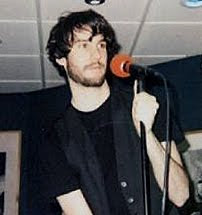On the occasion of what would have been John Lennon's 70th birthday, the majority of the late Beatle's solo back catalogue was reissued (yet again), both as individual albums, and in one large boxset encompassing nearly everything. Two 'best of' collections were also released: Power To The People, a more traditional greatest hits package, and Gimme Some Truth, a four disc box set for lazy "Lennon fans", who don't have time to listen to everything, but would like to hear a few hours of his music sorted into lyrical categories. For whatever reason, Lennon's swan song collaboration with wife Yoko Ono, Double Fantasy, was reissued with a second disc containing all of the album's tracks, sans overdubs. Aside from the peculiar singling out of that album, the idea of releasing embryonic Lennon material is kind of odd. In the years following his death, the release of demos and outtakes from the Lennon vaults has become so frequent, that the general public image of him seems to be of a man playing acoustic guitar alone in a room. Those familiar with Lennon's living discography, know that the man was a big fan of production. Phil Spector, known for his lush recording techniques, worked on several records with Lennon, including a controversial set of orchestral overdubs and tweaking to The Beatles' Let It Be, an album that's original concept was for a bare bones, "warts and all" live performance record.
The point here is that Lennon would most likely not approve of this somewhat frivolous bonus disc, not to mention all of the previously released anthology recordings released since the mid 90's (The Beatles Anthology can be excused for majority rule). For starters, one of Lennon's trademarks was his doubletracked voice, which is the first noticeable difference heard on Double Fantasy Stripped Down. Lennon notoriously hated his own voice and looked for various ways to distort and experiment with it in order to achieve a sound he was comfortable with. Taking his vocal overdubs off is like tearing off the top of the casket. Secondly is the lack of gated reverb, a style that would come into full swing popularity wise in the 1980's. Gated reverb is a technique that has been greatly criticized since the aftermath of its heyday. Lennon, however, had been using it for years at this point with great effect ("I Don't Want To Be A Soldier Mama" comes to mind when thinking of 80's production in the 70's). Double Fantasy continued the progression of Lennon's use of heavily reverbed production, handled by Imagine engineer, Jack Douglas. The final product was an album both Lennon and Ono were very proud of and excited about. Ultimately, the bonus disc here is like a director's cut for a director who supervised every aspect of the film.
The appreciation of Lennon's work will always be skewed by his death. Double Fantasy was initially panned upon its November 1980 release, but soon after Lennon's shooting on December 8th, the public grew to appreciate the record, and it has gone on to be hailed as one of the best records of the 1980's. Personally, I like the album, and I feel like the initial distaste for it was more of a resentment towards Lennon for cutting another record with his wife, whose songs are no where near as bad as everyone wants to believe. "Kiss Kiss Kiss" and "I'm Moving On" are particularly great early examples of avant-pop. The release of a 'stripped down' version though just seems pointless, and not in Lennon's legacy's best interest.
Sunday, October 17, 2010
Subscribe to:
Post Comments (Atom)






No comments:
Post a Comment